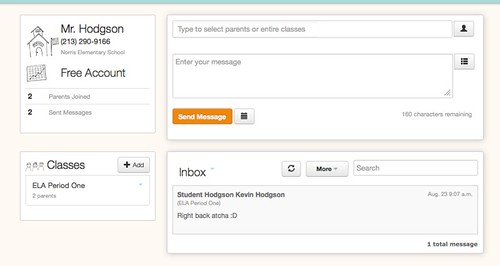
I’m not a programmer, or coder, and I have never worked on a software developer team, so I am not sure exactly what spurred me on to pick up Team Geek by Brian Fitzpatric and Ben Collins-Sussman. Both of them work at Google, and I had heard a bit about this book through one channel or another, and it piqued my interest. I’m glad I got it and read it.
While ostensibly about the ways that a team of software programmers can work together, and avoid chaos and friction as much as possible, the book’s larger theme of how people can come together, learn from each other, respect each other’s expertise and work on larger ideas in collaboration with each other really resonated with me in these days of Personal Learning Communities and Communities of Practice and whatever other term is popping around the educational circles these days.
With great humor and lively writing (ie, humans are “giant intermittent bugs” of code), Fitzpatrick and Collins-Sussman put a premium on four main traits of a group that can work together:
- Humility
- Respect
- Trust
In their view, a solid team and its leaders keeps these three ideals intact at all times. It’s simple, but powerful. We need humility to admit that we don’t know everything and are always in search of better information that someone else might have. We need to respect the interests and expertise of our colleagues, even when their interests might not jive with our own. And we need to trust that together, we can do a better job than if either of us were alone, and we need to believe that the team has our best interests at heart. If that isn’t applicable to the ways that teachers and educators come together to plan curriculum or talk about students or shift into big changes (Common Core, anyone?), then I don’t know what is.
At the end, the writers admit that while they were writing about software teams, they really weren’t writing just about software teams. “Our stories are essentially about the art of maintaining a healthy, functional community — any community … Humans are tricky to deal with no matter what the context, and software development has the same community-health issues as any other group endeavor.” (158)
So do educational groups.
Peace (in the code of HRT),
Kevin
PS — here is one of the videos they did for Google about programming with humans in mind. It will give you a taste of their humor.




